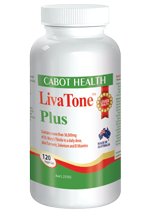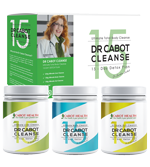Safeguard your physical and mental health with this expert advice…
Some things in life, we do without thinking — follow Miranda Kerr’s Instagram, envy Conor McGregor and enjoy an ice-cold beer. Others take convincing to get on board with, like, seeing the doctor. Given most of us men would give our right arm to be as fit as the likes of McGregor, it seems weird we don’t prioritise our physical and mental health.
“For many complex reasons, men avoid doctors, complementary health practitioners, medical check-ups and psychologists,” says Dr. Sandra Cabot. “They also avoid sharing their physical, emotional and sexual concerns with their mates. Men typically display a lack of interest in their physical and mental health and will often only go to the doctor when they have the ‘flu’. This is too laidback. No matter how macho you think you might be, you’re not bulletproof.”
Unless you’re in a job that requires mandatory health checks, like a pilot, a heavy vehicle driver or an elite athlete, you’re probably not visiting your GP as often as you should. This can become problematic and lead to serious health problems down the track. To help you out, and hopefully improve your longevity, we’ve asked Dr. Cabot to list the simple health checks you should be having now and in your future.
IN YOUR 20s:
At this age, you’re probably burning the candle at both ends. You might be starting out in your career and going hard at work or studying equally as strenuously. You’re probably also putting in a decent amount of hours at the pub or club. “Balance it out with plenty of sleep when you can get it, exercise regularly and have a decent diet that includes vegetables and lean sources of protein.
I recommend a detox every six months, too. It will help to keep your liver in check,” says Dr. Cabot. “Aim for at least an annual visit to your GP to have your blood pressure tested and your lungs and heartbeat checked out, too. If you’re taking party drugs like speed, ice, ecstasy or cocaine, have a liver and kidney function test, which is a simple blood test that determines if these vital organs are working properly.”
It wouldn’t hurt to have an FBC (Full Blood Count) test, which checks red and white blood cells and gives an indicator of immune health.
IN YOUR 30s:
Along with the healthy lifestyle choices outlined above, regular GP visits become more important as we get older — the stress of a career, a family to support and possibly even a mortgage come into play. At this age the tests you should be asking for are the aforementioned FBC and Liver and Kidney Function tests, as well as your Fasting Blood Sugar levels (which is a test for diabetes) and a Lipids test (which determines the fats in your blood). These are all simple blood tests that aren’t time consuming, painful or embarrassing.
“If you’re of Northern European descent, ask your GP for a Serum Iron Level Test, too,” advises Dr. Cabot. “This evaluates your body’s stores of iron. Those with ancestors originating from Northern Europe have been known to present with a genetic condition called Haemochromatosis, a disease which causes the body to absorb too much iron. Excess iron can cause damage to organs.”
IN YOUR 40s:
Alongside the tests we’ve already mentioned, ask your doctor for a Prostate Specific Antigen Blood Test, advises Dr. Cabot. “This simple test can detect antigen levels in the blood that might indicate an abnormality in the prostate. If you are getting up to wee several times each night, it might indicate an enlarged prostate, in which case you should speak to your GP about having a digital rectal exam. It’s also time you had a Faecal Occult Blood test,” suggests Dr. Cabot. Yes, you will need to poo in a jar.
“It’s simple — your stool is tested for any microscopic drops of blood that might be present, which can indicate polyps that could lead to bowel cancer if left untreated. Any minor embarassment is offset by the possible health complications you avoid down the track. While you shouldn’t be alarmed, you should also be aware that bowel and stomach cancers are not rare in men in their 40s. With this in mind, if you do have any symptoms of bowel or stomach problems, see a gastroenterologist for a colonoscopy and gastroscopy.”
You also might want to consider having your ticker checked out, particularly if there is a history of heart disease in your family or you’re carrying some extra weight or, if indeed, you’ve been experiencing even mild chest pain. “A 12 Lead Electrocardiogram can be easily performed by a cardiologist to test electrical activity of the heart,” explains Dr. Cabot. “Finally, make an annual visit to your optometrist to test for glaucoma (high pressure in the eye), macular degeneration and cataracts, especially if you’re diabetic. Eye diseases are far more common in diabetics, but they are also genetic, so check your family history.”
IN YOUR 50s AND 60s: “During these decades, have all the aforementioned tests, and add an annual electrocardiogram to your list,” says Dr. Cabot. “Especially if you’re overweight or have a family history of heart disease. You also should have a colonoscopy every three to five years, depending on family history of bowel cancer.”
DR. CABOT’s SIMPLE TO-DO LIST
CHECK YOUR FAMILY HISTORY
“Diseases that run in families include diabetes, heart disease, strokes, high blood pressure, some forms of cancer and some forms of mental illness. Many of these diseases can be prevented or reversed using nutritional medicine.”
BUY A BLOOD PRESSURE MONITOR
“They’re inexpensive and can be life-saving. High blood pressure is a silent killer and can cause strokes and chronic disability at a relatively young age. If you are reading high, see your GP.”
TAKE MAGNESIUM SUPPLEMENTS
“Magnesium has been shown to reduce the risk of sudden cardiac death from various causes. It also promotes relaxation and good quality, deeper sleep.”
TAKE VITAMIN C
“Two times Nobel Prize winner, the late Professor Linus Pauling, showeds that vitamin C reduces the risk of cardiovascular disease. Many men don’t get enough of it, so improve your diet and take a supplement to be safe.”
LOVE YOUR LIVER
“This means cutting back on sugar and going easy on alcohol. Your liver is the filter of your blood stream and it also controls fat metabolism. To be strong, energetic and muscular you need a healthy liver.” Fellas, we’re not saying this is easy but it could help save your life — have at least three alchohol-free days each week, replace sugar with fruit and protein and take a liver tonic to support better liver function and increase your energy levels.
• Try Cabot Health Livatone Plus, $34.95, cabothealth.com.au
If at any stage your Liver Function Tests shows your liver is not healthy, follow it up with an ultrasound. You may have a fatty liver. “Don’t panic – it can be reversed and in doing so, you can restore your health,” explains Dr. Cabot, who wrote the book on the subject – Fatty Liver, You Can Reverse It.
TAKE SELENIUM
“It can help boost testosterone and sperm production. It also has cancer preventative properties.”
• Try Selenium Ultra Potent, $23.50
DO A DETOX
Doing a cleanse every six months or so will help support your liver function, balance gut health and alkalise the body, all of which can help ward off illness and disease. 
• Dr Cabot’s new 15-Day Cleanse is a three-powder program plus meal plan that’s simple to follow and enjoyable to do. Priced at $99 for the powders and a comprehensive cleanse support guide, meal plan and recipes, you can also opt to have all the pre-prepared meals delivered to your door for only a further $318 during the entirety of the cleanse. Visit drcabotcleanse.com to purchase.
Think you need a detox? For your chance to win one of three complete cleanse plus meal plans, email contact@drcabotcleanse.com and tell us why you need a detox in 25 words or less. Competition closes Wednesday 18 April at 5pm Australian Eastern Time.
by SHONAGH WALKER




